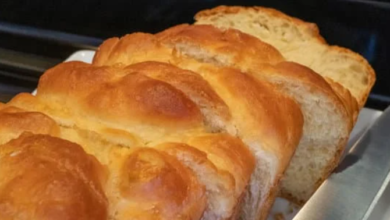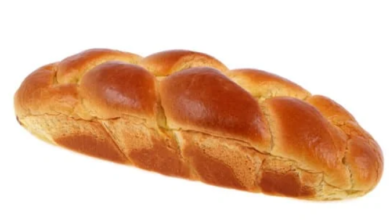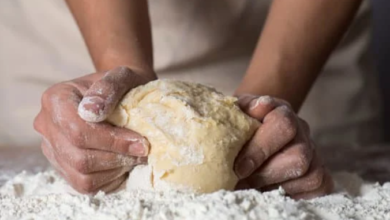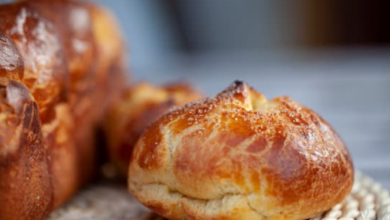Why is My Brioche Dense and What Can I Do to Fix It?
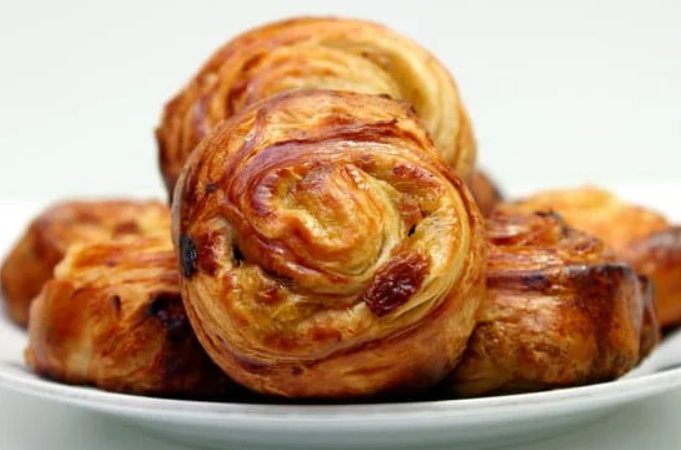
What To Know
- Excessive kneading or mixing can develop the gluten in the dough, resulting in a tough and dense texture.
- Let the brioche cool in the pan for a few minutes before transferring it to a wire rack to cool completely.
- Overbaking the brioche or baking it at too high a temperature can cause the exterior to burn while the interior remains uncooked.
Brioche, a French pastry renowned for its pillowy texture and buttery flavor, can sometimes disappoint with a dense and unyielding crumb. If you’ve encountered this culinary conundrum, you may be wondering, “Why is my brioche dense?” Understanding the reasons behind this pastry mishap is crucial for mastering the art of creating airy and delectable brioche.
Insufficient Proofing
Proofing, the process of allowing the dough to rise, is paramount for developing the brioche’s signature light texture. Inadequate proofing results in dense and under-developed dough. Ensure that the dough rises in a warm, draft-free environment for at least 2 hours, or until doubled in volume.
Incorrect Ingredient Proportions
The delicate balance of ingredients in brioche dough is essential for achieving its airy texture. Too much flour or not enough yeast can hinder the dough’s rise, leading to a dense crumb. Follow the recipe precisely and avoid adding extra flour unless absolutely necessary.
Overworking the Dough
Excessive kneading or mixing can develop the gluten in the dough, resulting in a tough and dense texture. Handle the dough gently and mix it only until the ingredients are well combined. Avoid overworking the dough by hand or with a mixer.
Insufficient Butter
Brioche is characterized by its rich buttery flavor and texture. Insufficient butter in the dough can result in a dry and dense crumb. Make sure to use high-quality butter and incorporate it into the dough thoroughly.
Incorrect Oven Temperature
Baking the brioche at too low a temperature can prevent it from rising properly, leading to a dense crumb. Preheat the oven to the correct temperature and ensure that it is accurate. Avoid opening the oven door during baking, as this can cause the brioche to fall.
Lack of Steam
Steam helps create a moist environment in the oven, which is essential for the brioche’s rise. Place a pan of hot water on the bottom rack of the oven to generate steam. This will help prevent the brioche from drying out and becoming dense.
Cooling Too Quickly
Allowing the brioche to cool too quickly after baking can cause it to collapse and become dense. Let the brioche cool in the pan for a few minutes before transferring it to a wire rack to cool completely. Covering the brioche with a tea towel will help retain moisture and prevent it from drying out.
Frequently Asked Questions
Q: Why is my brioche gummy?
A: Overworking the dough or using too much sugar can result in a gummy texture.
Q: Why is my brioche not fluffy?
A: Insufficient proofing, incorrect ingredient proportions, or overworking the dough can prevent the brioche from becoming fluffy.
Q: Why is my brioche too dense?
A: A combination of factors, such as inadequate proofing, incorrect ingredient proportions, overworking the dough, or insufficient butter, can contribute to a dense brioche.
Q: Why is my brioche raw inside?
A: Baking the brioche at too low a temperature or for insufficient time can prevent it from cooking through.
Q: Why is my brioche burnt on the outside but raw on the inside?
A: Overbaking the brioche or baking it at too high a temperature can cause the exterior to burn while the interior remains uncooked.
